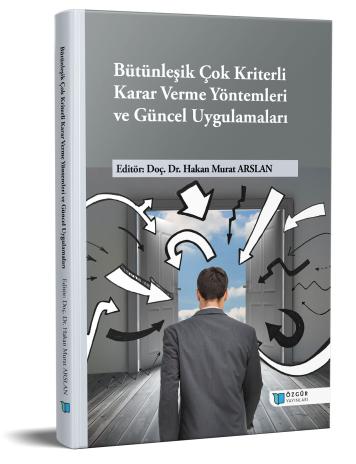
Evaluation of the Logistics Performance Indices of G20 Countries Using the Integrated Entropy-CoCoSo Method
Chapter from the book:
Arslan,
H.
M.
(ed.)
2024.
Integrated Multi Criteria Decision Making Methods and Current Applications.
Synopsis
This study evaluates the logistics performance of Turkey and the developing G20 countries using the Logistics Performance Index (LPI) periodically published by the World Bank. The LPI measures the trade logistics performance of countries across six criteria (efficiency of customs clearance, quality of trade and transport infrastructure, ease of arranging competitively priced shipments, competence and quality of logistics services, ability to track and trace consignments, and frequency of on-time deliveries). The study employs the Entropy method to determine the weights of the criteria and the CoCoSo (Combination of Correlation-based Ranking) method to rank the countries' performances. This allows for a comparative analysis of the logistics performance of the G20 countries, both among themselves and in relation to the results published by the World Bank. The analysis results show significant differences in logistics performance among the G20 countries, with clear identification of their strengths and weaknesses. Particularly, it was found that Turkey is weaker in the "efficiency of customs clearance" criterion but exhibits a strong performance in the "competence and quality of logistics services" criterion. The findings provide important implications for the logistics sector and policymakers. Industry representatives can evaluate their own performance to strengthen their competitive position. Policymakers can develop effective strategies to improve the country's weaknesses. Furthermore, it is recommended to use more comprehensive and hybrid multi-criteria methods to overcome the methodological limitations of the LPI.

